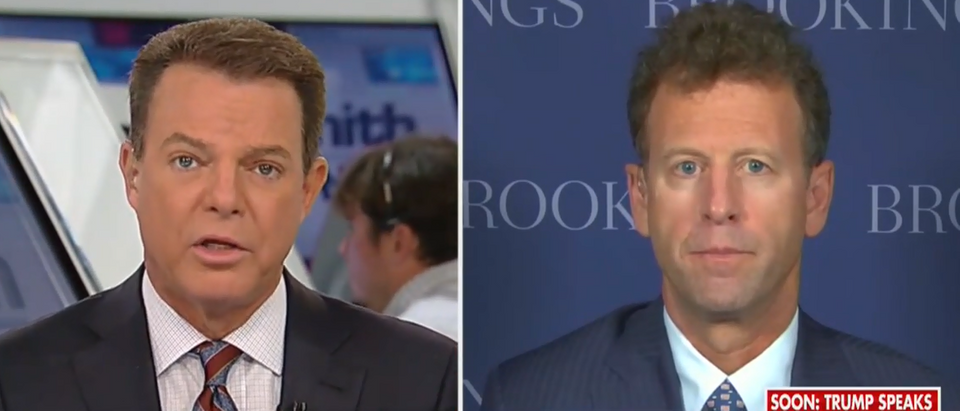Fox News anchor Shepard Smith suggested that a motivation behind President Donald Trump’s decision to pull troops from Syria could be the “politics of distraction” designed to get people talking about other things before eventually deciding to bring them back.
But Smith’s Monday afternoon “Shepard Smith Reporting” guest, Brookings Institution senior fellow Michael O’Hanlon, had a different theory behind the withdrawal.
WATCH:
Smith started the segment by accusing Trump of “leaving the Kurds to slaughter,” before asking O’Hanlon if there was “another way” to view it.
O’Hanlon expressed his desire for Trump to “reassess” his position, saying only 1,000 troops are needed “to keep some degree of stability” in northeast Syria.
“I ask because you wonder how much of this really is the politics of distraction,” the Fox News anchor said after asking O’Hanlon if troops were already on the move. “There is a lot on the president today. There’s a second whistleblower. There is so much going on, a late-night announcement like this, and then all of the Republicans are turning on him, the leader in the Senate, Lindsey Graham – you name it – Republicans have come out against him on this. So you wonder if it is not one of those things to get people to talk about all day and then at some point and he’ll go, ‘eh, never mind.'”
“There is that possibility,” said the Brookings Institute researcher, “but you know, even though I’m in favor of staying in Syria and I’m against the president’s recent decision, I think he speaks for a lot of people in his frustration with the seemingly interminable Middle East wars that are also very hard to understand.”
O’Hanlon described the “moving parts” and complexities behind the conflict before rendering his opinion on Trump’s motivation. (RELATED: Here’s What Republicans Are Saying About Trump’s Decision To Pull Troops From Syria)
“If you are President Trump and you’ve got a million issues on your plate, there’s probably a temptation to say, I don’t want anymore to do with this conflict,” he said. “I sense that is where he’s coming from more than anything else. I think it is bad way to make policy, but I have some degree of sympathy.”












